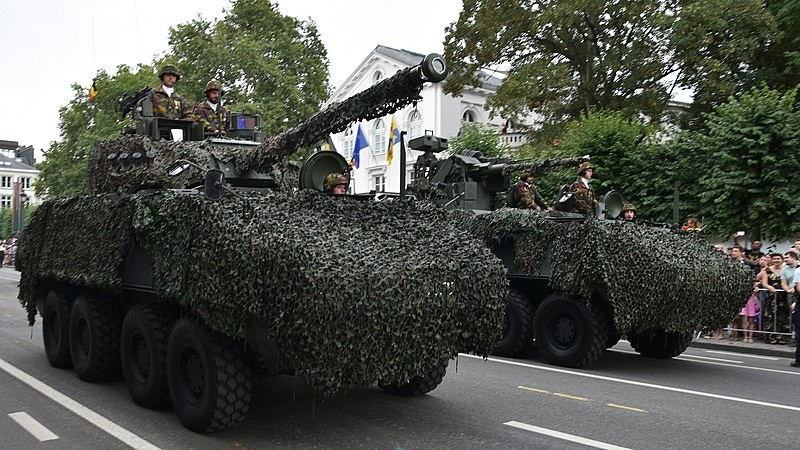18 armoured vehicles of the Belgian army are unable to fire anti-tank ammunition, 10 years after they have been purchased.
The Belgian cannot deploy 18 anti-tank vehicles against other tanks, even though that was exactly what they were bought for. The problem is with the 90-millimetre cannon (DF90) with which the Piranha-vehicles are equipped.
The results of the last tests with armour-piercing ammunition, that took place in November 2019, were negative, according to internal correspondence at the Defence department.
"In view of the fact that the problems (...) have still not been solved after about 10 years of use, COL (chief of staff of the land component) has decided that there will no longer be any investment in the vehicle as a fully-fledged anti-tank capacity," the report said, reports De Morgen.
Three of the Piranha-vehicles have just returned from a NATO-mission in Lithuania to deter Russian tanks, but without Belgian anti-tank ammunition. The vehicles can fire a different type of ammunition, but that type cannot pierce armour.
According to the Belgian Defence department, the problem has only been discovered recently because the department did not have any armour-piercing ammunition before May 2017.
Related News
The Piranha's Direct Fire 90 millimetre cannons have a lot of issues when firing the armour-piercing ammo, including screws coming loose, breaking valves and disintegrating wires due to the heat.
The problems are not caused by the usual wear and tear, but have been present since the vehicles have been purchased. When then-Minister of Defence, André Flahaut, ordered the Piranhas in 2006 to replace the Leopard-tanks, the Defence department already questioned the decision as 90 millimetres is not the NATO-norm. Only the Walloon company CMI was able to supply the 90-millimetre cannons, and only the Belgian company Mecar produced the 90-millimetre ammunition needed, reports Het Nieuwsblad.
Belgium paid €69.9 million for these armoured vehicles with a 90 mm cannon, and ammunition for a total of over €5 million was also purchased.
As soon as Pieter De Crem was appointed Minister of Defence, he stopped the order of 22 Piranhas, but for 18 others it was too late.
Breaking the contract with the Swiss manufacturer Mowag would have resulted in too high a compensation. The Crem immediately put the eighteen armour on sale, without success.
The independent military trade union ACMP calls it "distressing that the army has failed to solve this problem in ten years. This is an incredible waste of public resources, and therefore of taxpayers' money," they said, reports De Morgen.
Maïthé Chini
The Brussels Times

